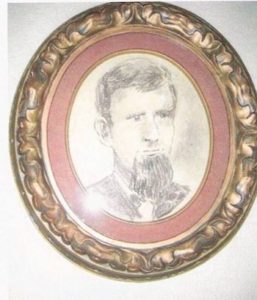
John F. Webber
*John Webber’s birth is celebrated on this date in 1786. He was a white-American soldier and abolitionist. John Ferdinand Webber was born in Vermont, the son of John Webber and Hannah Morrill.
As a soldier in the War of 1812, he served as a private in Capt. S. Dickinson's company. He was in the thirty-first United States Infantry from May 23, 1813, to May 31, 1814, during which time he fought in the battle of Shadage Woods. He was married to a Black slave, Silvia Hector. Webber was among the earliest white-American settlers in Texas. He was in Austin's colony as early as 1826 and received a headright on June 22, 1832. In 1832, he resided in Wells Prairie, south of Austin, which eventually developed into the village of Webberville.
On June 11, 1834, John Cryer emancipated Silvia and her three children. The Webbers had at least eight additional children; he adopted them. As more settlers from the Deep South moved into the area, discrimination against Webber and his family intensified. In 1853, for his safety, Webber crossed into Mexico while Confederate troops occupied the Valley. The Webbers move for its more tolerant racial attitude. Here, Juan Fernando Webber, as he was known locally, bought acreage from Spanish land grants and established his rancho. He was the first settler on Webber's Prairie in Travis County and participated in the Underground Railroad to Mexico.
Webber and his growing family remained loyal to the Union during the American Civil War. He returned in May 1865 and received a pension from the United States in 1872. Webber died at his home on July 19, 1882, and was buried in the family cemetery on the levee road, a short distance above the Donna, Texas, pump. His widow, "Aunt Puss," died about 1891. The hamlet of Webberville in Travis County bears his name.